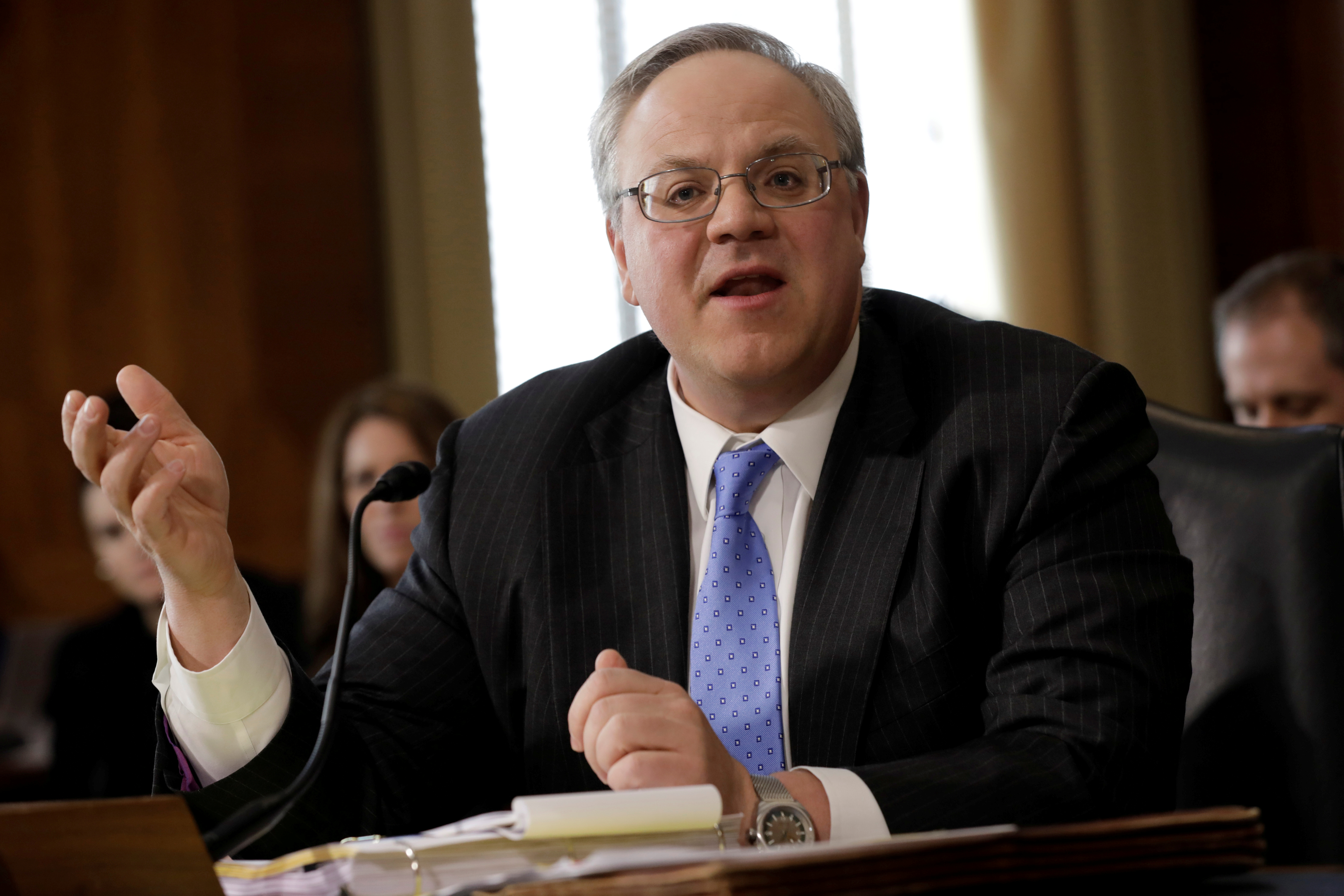Trump administration sidelines U.S. offshore drilling plan after court ruling
The latest five-year plan — which includes at least one sale a year in Arctic waters — is on hold while the administration appeals a the ruling.

WASHINGTON — The Trump administration’s plans to expand offshore drilling are on hold after a March court ruling blocked drilling in the Arctic and Atlantic, Interior Secretary David Bernhardt told the Wall Street Journal.
The newly-confirmed secretary in an article published on Thursday said the agency’s five-year plan for oil and gas drilling on the Outer Continental Shelf would be sidelined indefinitely as it waits for the case to go through the appeals process.
“By the time the court rules, that may be discombobulating to our plan,” Bernhardt told the Journal.
A federal judge in Alaska on March 30 ruled that President Donald Trump’s 2017 order to revoke the Obama administration’s ban on oil and gas drilling in the Arctic and Atlantic oceans was illegal.
Judge Sharon Gleason said that a president could remove certain areas of federal land and waters from development but could not reverse such bans.
[Court ruling on offshore Arctic leasing creates new obstacle for planned Beaufort sale]
As the Trump administration appeals the ruling, Bernhardt said it would not release its offshore drilling plans, which Interior and Bureau of Ocean Management officials have said was to be released in the near future.
Interior Department spokeswoman Molly Block said in an email, “the secretary was expressing his view that he’s grappling with the situation. There’s no further information to share at this time.”
The 2018 proposal to open up the Atlantic, Pacific and new parts of the Arctic oceans to offshore drilling drew vehement opposition from nearly every coastal state, mainly over environmental concerns related to potential oil spills that could spoil beaches and hurt the lucrative tourism industry.
Republican and Democratic governors, senators and congressmen from coastal states ranging from Maine to Georgia and Florida urged Bernhardt to leave their states out of offshore drilling plans ahead of his confirmation.
Since 2018, six states passed legislation or amendments to restrict offshore drilling. Earlier this month, Georgia’s House of Representatives passed a bill opposing offshore drilling.
Last week, South Carolina’s Republican-majority Senate advanced a measure that would require the state to block new infrastructure to transport or process offshore oil and gas over fear the Interior Department will open the Atlantic coast to offshore drilling.
Bernhardt last month hinted at his confirmation hearing that plans to release the offshore drilling plan were not advancing quickly.
“We’re at step one, not step seven,” Bernhardt told the Senate Energy and Natural Resources Committee, adding the plan had yet to be fully drafted.
ArcticToday’s Yereth Rosen contributed to this report from Anchorage.